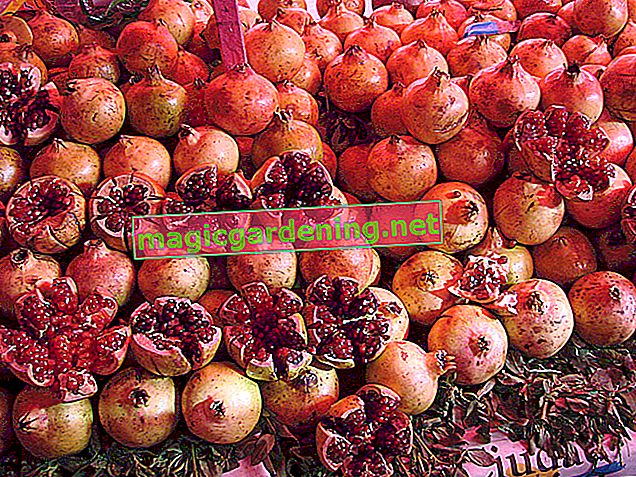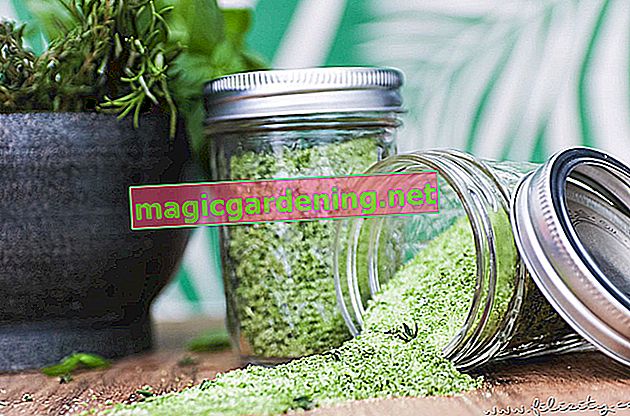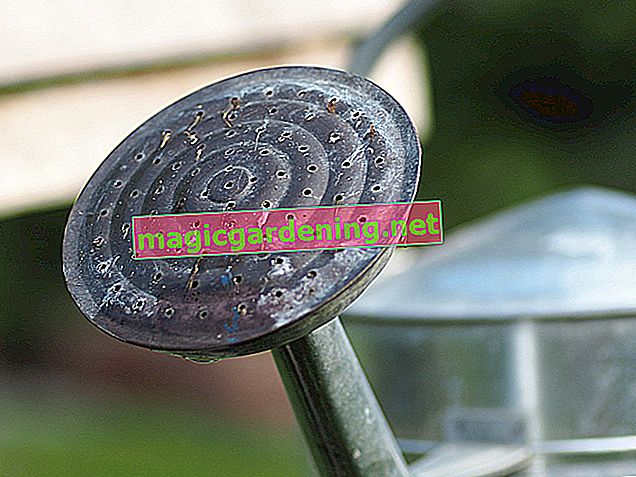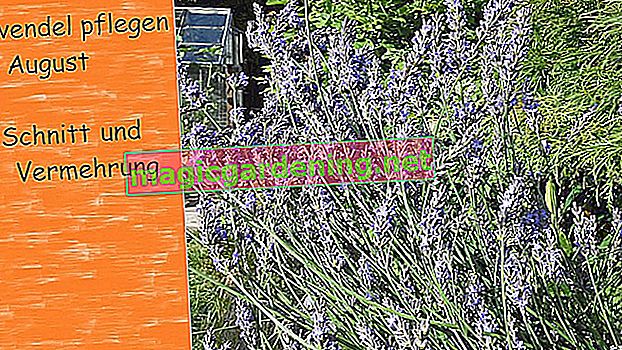
The ripe pomegranates have a pleasantly tart, sweet taste. The edible seeds of the fruit consist of a solid core that is surrounded by a glassy-looking fruit coat. This shell, which is full of juice, bursts with little pressure and the juice leaves dark red stains on light-colored fabrics.
also read
- Pomegranates are not citrus fruits
- When pomegranate is brown inside
- Ripe pomegranates are a treat
Avoid stains: Open the pomegranate properly
To avoid the splash of juice when opening a pomegranate, proceed as follows:
- first cut off or out of the flower base with a sharp knife,
- then cut into the shell all around from top to bottom two to eight times,
- break the fruit apart at the incised areas,
- remove the kernels with your fingers in a bowl, if necessary they fall off when you tap the bowl gently.
It is often recommended to break the fruit apart and loosen the stone in a bowl filled with water. This means that any splashes of juice remain under water and it is easier to “separate the wheat from the chaff”, as the heavy kernels sink to the bottom of the bowl while the light pieces of skin between the skin remain floating on top. To make juice, cut the pomegranate in half and squeeze it with a citrus press.
Treat stains as soon as possible
As with red wine, the same applies to pomegranates: fresh stains are best removed! The easiest way to do this is with a standard stain remover. If you don't have the right remedy at hand, the tried and tested home remedies can also help:
- Gall soap,
- Bleach,
- Lemon juice in connection with household salt.
For the robust textiles made of pure white cotton or cotton blend, we recommend pretreating them with a bleach (e.g. Dan Klorix, if necessary diluted with water beforehand) and then washing them out by hand or in the washing machine .¹
The treatment of stains on colored or sensitive fabrics such as silk or wool requires a little more effort and is unfortunately often at the expense of the colors. You should first absorb the remaining liquid with kitchen paper. By adding carbonated mineral water to the stain, you can reach the color particles that have penetrated deeper into the fabric and in this way “dilute” the intensity of the color.
Dripping the lemon juice on the stain also has a fading effect. After an exposure time of about 30 minutes, a little household salt can be added, which then pulls the remaining liquid color particles out of the fabric. Treatment with gall soap, which is moistened directly on the stain and also left to act, can also be helpful. Then wash the garment with heavy duty detergent.
Tips & Tricks
For the old pomegranate stains, the pretreatment with the ink killer and subsequent treatment with lemon should help. When in doubt, leave no stone unturned!
¹ Source: //www.waschmaschinentests.org/








